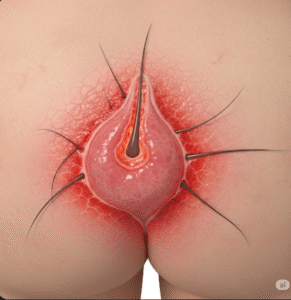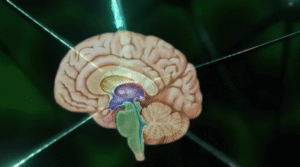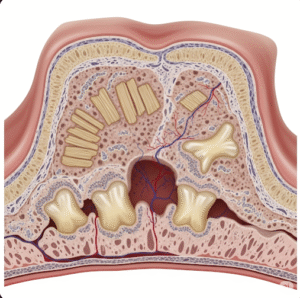Overview
Fatigue is a persistent feeling of physical, mental, or emotional exhaustion that is not relieved by rest. It can affect daily functioning, productivity, and overall quality of life. Fatigue may result from lifestyle factors, medical conditions, or psychological issues. In Korea, hospitals and clinics provide comprehensive evaluation, diagnosis, and management for fatigue, ensuring both underlying causes and symptoms are addressed effectively.
Key Facts
▶ Prevalence: Fatigue is a common symptom affecting people of all ages worldwide.
▶ Causes: Sleep deprivation, stress, anemia, chronic illnesses, thyroid disorders, depression, or lifestyle factors.
▶ Associated Symptoms: Weakness, reduced concentration, drowsiness, irritability, and lack of motivation.
▶ Treatment Options in Korea: Lifestyle modifications, medical interventions, counseling, and integrative therapies.
▶ Urgency: Persistent, unexplained, or severe fatigue should be evaluated to rule out underlying health issues.
What is Fatigue?
Fatigue is more than ordinary tiredness. It is a chronic state of low energy, reduced endurance, and mental cloudiness.
▶ Physical Fatigue: Muscle weakness, reduced stamina, and difficulty performing daily activities.
▶ Mental Fatigue: Poor concentration, memory lapses, and slowed cognitive processing.
▶ Emotional Fatigue: Irritability, low motivation, and lack of interest in usual activities.
▶ Acute vs. Chronic Fatigue: Acute fatigue is temporary and related to exertion or short-term stress. Chronic fatigue persists for weeks or months and often requires medical evaluation.
▶ Impact on Life: Fatigue affects work performance, social interactions, and overall well-being.
Note: Identifying whether fatigue is a primary condition or a symptom of an underlying disorder is essential for effective treatment.
What Symptoms Are Related to Fatigue?
▶ Persistent Tiredness: Feeling drained even after adequate sleep.
▶ Muscle Weakness: Difficulty performing routine physical tasks.
▶ Cognitive Impairment: Difficulty concentrating, memory lapses, or mental fog.
▶ Sleep Disturbances: Insomnia, restless sleep, or excessive sleepiness.
▶ Mood Changes: Irritability, anxiety, or depression.
▶ Dizziness or Lightheadedness: Often associated with low blood pressure or anemia.
▶ Headaches: Can occur due to tension, dehydration, or chronic fatigue.
▶ Reduced Motivation: Loss of interest in work, hobbies, or social activities.
What Causes / Possible Causes
Fatigue can result from medical, psychological, or lifestyle factors:
▶ Sleep Disorders: Insomnia, sleep apnea, restless leg syndrome.
▶ Anemia: Low hemoglobin or iron deficiency reduces oxygen delivery to tissues.
▶ Chronic Illnesses: Diabetes, heart disease, kidney disease, or liver disorders.
▶ Thyroid Disorders: Hypothyroidism or hyperthyroidism affects metabolism and energy levels.
▶ Mental Health Issues: Depression, anxiety, or chronic stress.
▶ Infections: Viral or bacterial infections can cause prolonged fatigue.
▶ Lifestyle Factors: Poor diet, excessive caffeine, alcohol, or lack of physical activity.
▶ Medications: Side effects from antihistamines, blood pressure medications, or sedatives.
▶ Chronic Fatigue Syndrome (CFS): A complex disorder characterized by extreme fatigue lasting six months or more.
Note: Comprehensive evaluation is crucial to identify and treat underlying causes rather than just the symptom of fatigue.
When Should I See a Doctor?
▶ Persistent Fatigue: Lasting more than two weeks despite rest.
▶ Severe or Debilitating Fatigue: Interfering with daily life or work.
▶ Associated Symptoms: Fever, unexplained weight loss, night sweats, chest pain, or palpitations.
▶ Mental Health Concerns: Depression, anxiety, or emotional exhaustion.
▶ Chronic Illness: Fatigue in patients with heart, kidney, liver, or thyroid conditions.
▶ Children or Elderly: Unexplained fatigue may signal developmental or systemic issues.
▶ Medication Effects: Suspected side effects from prescription or over-the-counter drugs.
Tip: Korean hospitals offer comprehensive diagnostic testing, including blood work, imaging, and specialist consultations, to uncover the root cause of fatigue.
Care and Treatment
Treatment of fatigue depends on cause, severity, and individual needs:
▶ Lifestyle Modifications: Balanced diet, regular exercise, proper sleep hygiene, and stress management.
▶ Medical Treatment: Addressing anemia, thyroid disorders, infections, or chronic diseases.
▶ Psychological Support: Counseling, cognitive behavioral therapy, or stress management programs.
▶ Hydration and Nutrition: Adequate fluid intake and a nutrient-rich diet to support energy levels.
▶ Medication Review: Adjust or change medications contributing to fatigue.
▶ Energy Management: Prioritize tasks, take breaks, and avoid overexertion.
▶ Mind-Body Practices: Yoga, meditation, and relaxation techniques to reduce mental and emotional fatigue.
▶ Monitoring: Track symptoms to evaluate treatment effectiveness and adjust strategies.
Treatment Options in Korea
Medical Evaluation:
▶ Blood Tests: Check for anemia, thyroid function, vitamin deficiencies, and metabolic disorders.
▶ Imaging Studies: Assess organs and systems for chronic disease or hidden pathology.
▶ Sleep Studies: Evaluate for sleep apnea or other sleep disorders.
▶ Specialist Consultation: Internal medicine, endocrinology, psychiatry, or integrative medicine experts collaborate on treatment plans.
Advanced Therapies:
▶ Medication Management: Supplements for deficiencies, hormone replacement for thyroid disorders, or specific drugs for chronic illness.
▶ Behavioral Therapy: Address stress, depression, and sleep hygiene.
▶ Integrative Programs: Combine conventional medicine with acupuncture, nutrition counseling, and physical therapy to restore energy.
▶ Multidisciplinary Care: Holistic approach addressing physical, mental, and emotional contributors to fatigue.
Rehabilitation & Support:
▶ Patient Education: Understanding triggers, pacing activities, and self-care techniques.
▶ Follow-Up Care: Monitoring progress and adjusting interventions as needed.
▶ Specialist Clinics: Korean hospitals provide comprehensive fatigue management programs, integrating diagnostics, treatment, lifestyle guidance, and follow-up support.
Outcome: With early evaluation and tailored treatment in Korea, fatigue can be effectively managed, restoring energy, improving daily functioning, and enhancing overall quality of life.













